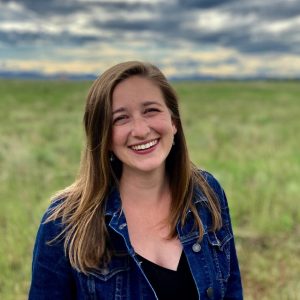
Lindsey Pointer, Ph.D.
Lindsey Pointer is an Assistant Professor at Vermont Law and Graduate School and Principal Investigator of the National Center on Restorative Justice. She has a PhD in Restorative Justice from Victoria University of Wellington in New Zealand and is a former Fulbright Fellow and Rotary Global Grant recipient.
Lindsey has worked as a restorative justice facilitator, community program manager, educator, and researcher. She is an author and has published three books on restorative justice: The Little Book of Restorative Teaching Tools (Good Books, 2020), The Restorative Justice Ritual (Routledge, 2021), and a children’s picture book Wally and Freya (Good Books, 2022).

Kathleen McGoey, M.A.
For eight years, Kathleen McGoey, MA, worked to expand the field of restorative justice practices through her leadership of Longmont Community Justice Partnership (LCJP). In April 2021, Kathleen left her position as LCJP’s Executive Director to launch Kathleen McGoey & Associates, Inc. and focus on increasing the use of restorative practices as tools for conflict transformation beyond the justice and school settings. Kathleen has delivered training to youth, law enforcement agencies, educators, district attorneys, volunteers, and community agencies throughout Colorado and beyond. She co-authored her second book, The Little Book of Restorative Teaching Tools, (Good Books, 2020) to capture and share the success of experiential learning methods she developed with colleagues at LCJP.
Kathleen has a Masters in International Peace and Conflict Studies from the University of Innsbruck, Austria, and a BA from the University of Notre Dame. She began facilitating conversations around social justice issues in Tijuana, Mexico while serving as the Executive Director of Los Embajadores. In 2013, Kathleen published her first book, Harmonizing Heavens and Earth: A Daoist Shamanic Approach to Elicitive Peacework, (Lit Verlag). Kathleen is recognized for her ability to create engaging, inclusive learning environments that prioritize embodiment, authenticity, and wellbeing.